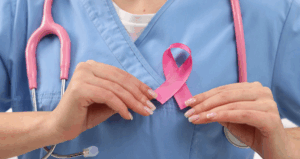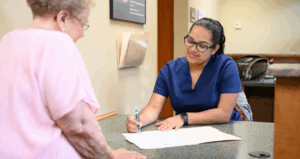Preventative care is one of the most important things you can do for your health. Being active, getting enough sleep and eating a healthy diet can help you stay well – and preventative screenings should be added to that list.
These health screenings can help establish a baseline for your health and alert you to any issues as early as possible. While nobody wants to receive an irregular test, the sooner an issue is detected, the more effectively it can be treated.
Are you up to date on your preventative health tests and screenings? Your eligibility is based on your gender, age and some other factors, such as family history. These are five of the most common health screenings and who is recommended to receive them.
1. Blood Pressure Screening
Blood pressure screening is a quick and non-invasive test that can be done as part of your regular checkup or to check for high blood pressure. It is performed by measuring the force of your blood by pushing against your artery walls.
Who Needs It
Experts recommend that healthy adults (with no history of hypertension or heart issues) between the ages of 18-39 get their blood pressure checked every two to five years. It’s recommended to start getting this common health test done annually when you are over the age of 40 (or if you have other risk factors). Individuals with blood pressure issues may need to take their blood pressure at home as part of a long-term care plan. Talk with your doctor about your health history to determine how often you should get your blood pressure checked.
How it Works
A healthcare provider will place a blood pressure cuff on the upper part of your arm, just above the elbow, which will inflate with air. Depending on the type of cuff being used, the provider will either listen with a stethoscope to record your pulse or use a machine that records this information manually. The provider will be able to provide you with your results immediately as a measurement of your blood pressure in millimeters of mercury (mm Hg). They will interpret your results as normal, elevated or high blood pressure (also known as hypertension).
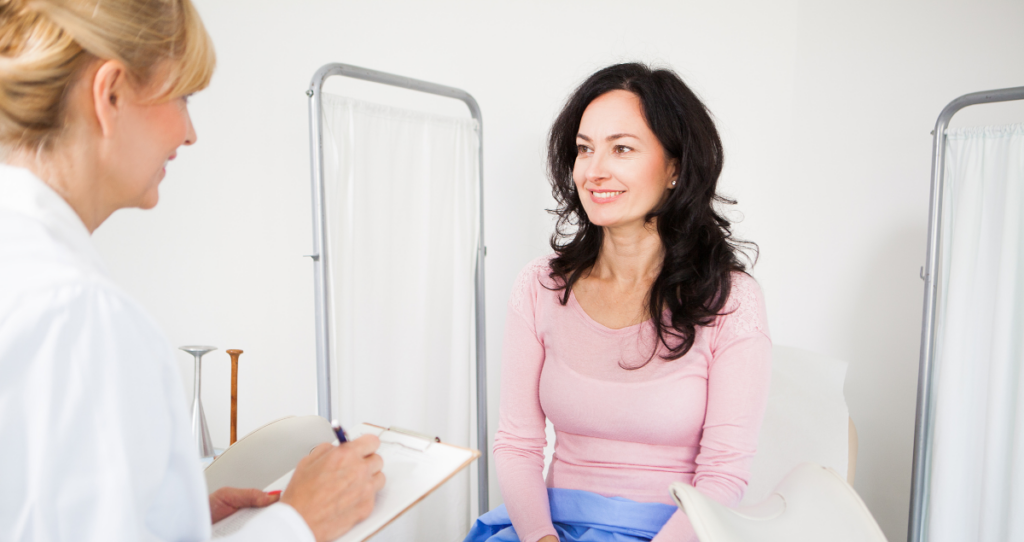
2. Cervical Cancer Screening (Pap Test)
Cervical cancer screening, which includes an HPV test and a pap test (also called a pap smear), is a common health test that screens for abnormal or precancerous cervical cells. This early detection is crucial for preventing cervical cancer or providing treatment if it is detected.
Who Needs It
Experts recommend that women get their first pap test at age 21. If the results come back normal, your doctor may recommend getting a follow up in three years, or more frequently if you have an abnormal result. Between 30 and 60, most women only need to repeat the screening every five years. Talk to your doctor about your health history and how often you should receive this health screening.
How it Works
During a pap test, you will undress from the waist down and sit on an exam table with your legs in stirrups. The provider will insert a device called a speculum to swab cells from your cervix. The sample will be tested in a lab to look for abnormal cells. It may take up to three weeks for your results to come back.

3. Colonoscopy
A colonoscopy is a common health test that internally examines a person’s large intestine (the colon) to check for colon cancer or other diseases. It is an important screening tool for early detection and treatment.
Who Needs It
Experts recommend that healthy adults get their first preventative colonoscopy by age 45. If the results come back normal, most will only need to repeat this test every 10 years according to the CDC. Individuals with symptoms, family history or risk factors may need to screen earlier or more often. Talk with your doctor about whether it’s time to schedule your colonoscopy.
How it Works
A colonoscopy is a slightly more invasive screening that is performed at a hospital. During the procedure, the individual is placed either under general anesthesia or conscious sedation before a doctor inserts a long, flexible tube through the anus and small intestine. This tube contains a small camera which transmits images to a monitor for the doctor to review. In most cases, your healthcare provider will be able to discuss results with you immediately following the procedure
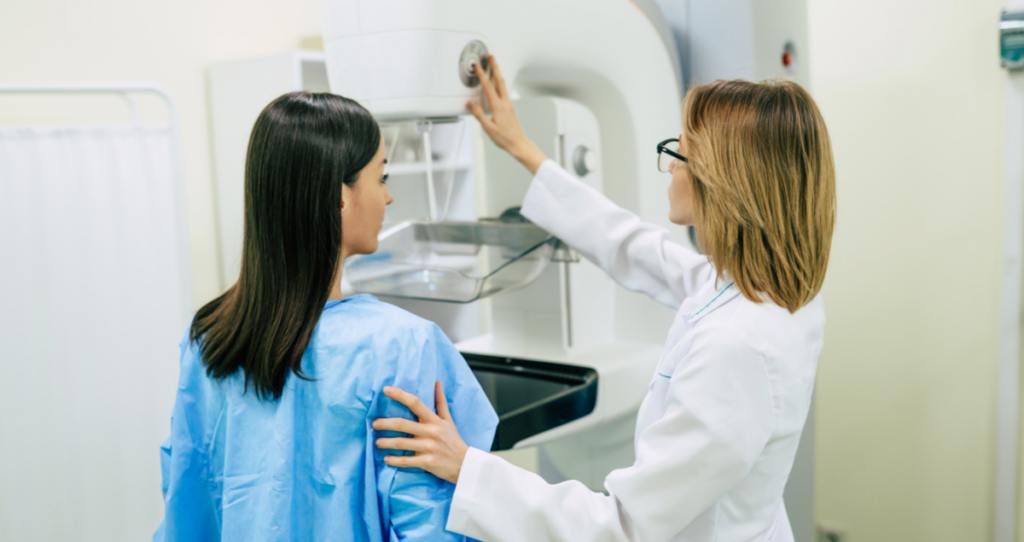
4. Mammogram
A mammogram is an X-ray taken of a woman’s breasts to screen for breast cancer before other symptoms are present. Early detection is incredibly important for women diagnosed with breast cancer as it allows for treatment to begin as soon as possible.
Who Needs It
While not all experts and healthcare professionals agree on the best time to start getting mammograms, the American Cancer Society recommends women of average breast cancer risk start this screening annually between the ages of 40 and 44. After age 55, it advises that women can continue to get one annually or switch to every other year. For women with a family history of breast cancer or other risk factors, earlier screenings may be recommended. Talk to your doctor about your breast cancer risk and when screening is recommended.
How It Works
While a mammogram only lasts a few short minutes, it can feel uncomfortable or even painful for many women. During the screening, a woman’s breasts are slowly pressed between two firm surfaces as an X-ray takes an image. These images are then evaluated by a radiologist to find abnormalities, which may result in a biopsy or other additional screenings. In most cases, results are available a few weeks after the test.
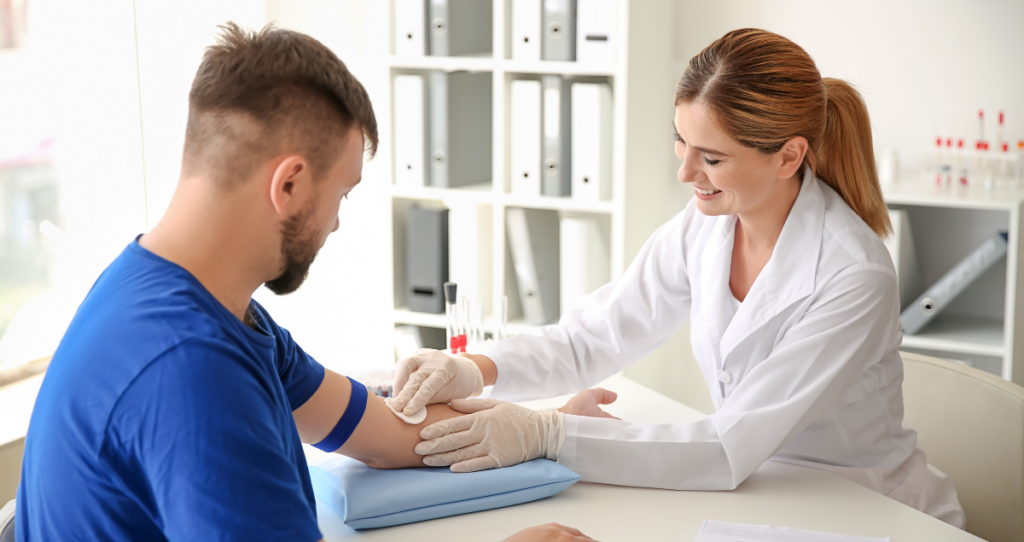
5. Cholesterol Screening
Cholesterol screening is a blood draw test, specifically a lipid profile, to determine whether an individual has high cholesterol. High cholesterol can be a risk factor for health issues such as heart attacks, which is why it’s important to have your levels checked regularly.
Who Needs It
It’s a good idea to get your cholesterol checked even if you are not experiencing any issues or symptoms. According to the CDC:
- Most healthy adults should get cholesterol screening done every four to six years.
- Children should have it checked once between the ages of 9 and 11.
- Adolescents should have it checked once between the ages of 17 and 21.
- Individuals with risk factors, such as heart disease, diabetes or a family history, should have it checked more often.
Talk to your doctor about your individual risk factors.
How it Works
To perform a cholesterol screening, your provider will draw a sample of blood to be tested in the lab. This testing examines levels of “bad” cholesterol (low-density lipoprotein), “good” cholesterol (high-density lipoprotein), a type of fat in your blood (triglycerides) and your total cholesterol based on the first three indicators combined. You may or may not be required to fast before the blood draw. Most lab results will be available within one to three days of the test.
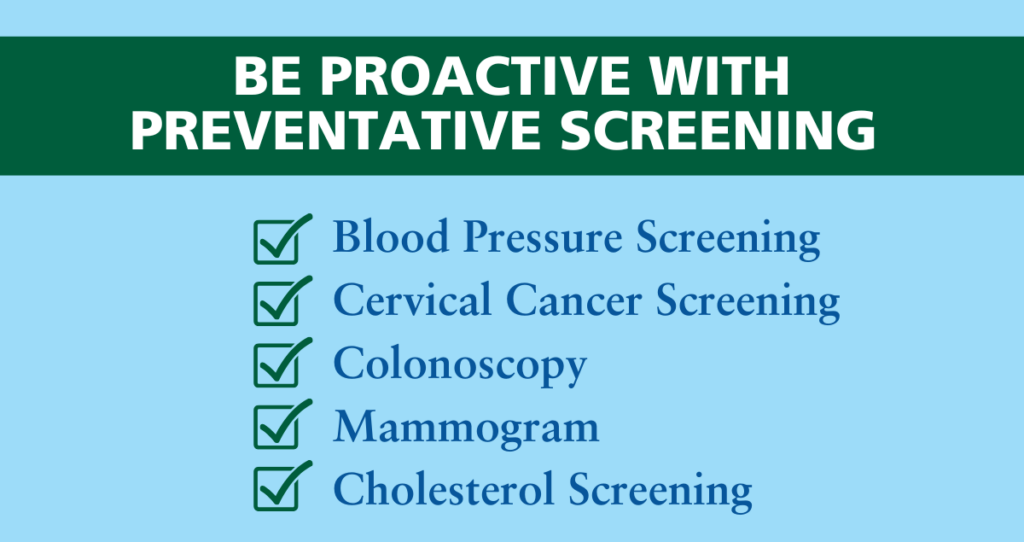
Other Health Screenings and Tests
- Diabetes Screening/Blood Glucose Test: A test that measures blood sugar levels for the earlier detection diabetes or prediabetes.
- Lung Cancer Screening: A CT scan used to screen for lung cancer in high-risk individuals.
- Osteoporosis Screening: A noninvasive imaging test that measures bone density.
- Skin Cancer Screening: An inspection of skin changes, including freckles and moles, by a dermatologist to detect possible skin cancer.
If you have questions about routine screenings, talk with your primary care doctor about your family history, risk factors and any other symptoms you’ve experienced.
Keeping Up with Health Screenings
It can be challenging to remember which screenings you are due for at each stage of life. Download and print this checklist to be proactive about scheduling these important tests.
How to Get a Referral
How to Get a Referral
While some health screenings can be scheduled without a referral, others need to be ordered by your primary care physician. In addition to specialized testing, keeping up with your annual check-up is an important part of maintaining your health as it gives you and your provider a baseline for what is “normal” for you.
About ACV Health
Need to connect with a primary health care provider? Our mission at ACV Health, an outreach of Advent Christian Village, is to provide compassionate care to those who need it in Live Oak, Florida. Patients experience the warmth of a small-town doctor’s office backed by the resources of a larger provider. Our services range from primary and specialty care to rehabilitation and home health.
Through our partner providers at the Copeland Medical Center, we also offer family dentistry, audiology, podiatry and more. Request an appointment today to get started.
DISCLAIMER: This blog is not intended as medical advice. If you have health-related questions, please speak with your doctor.



